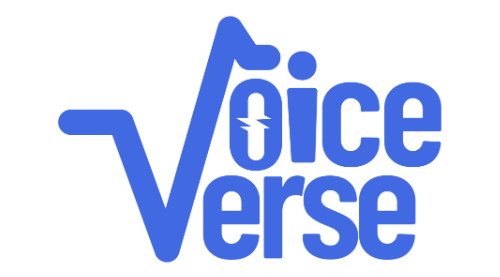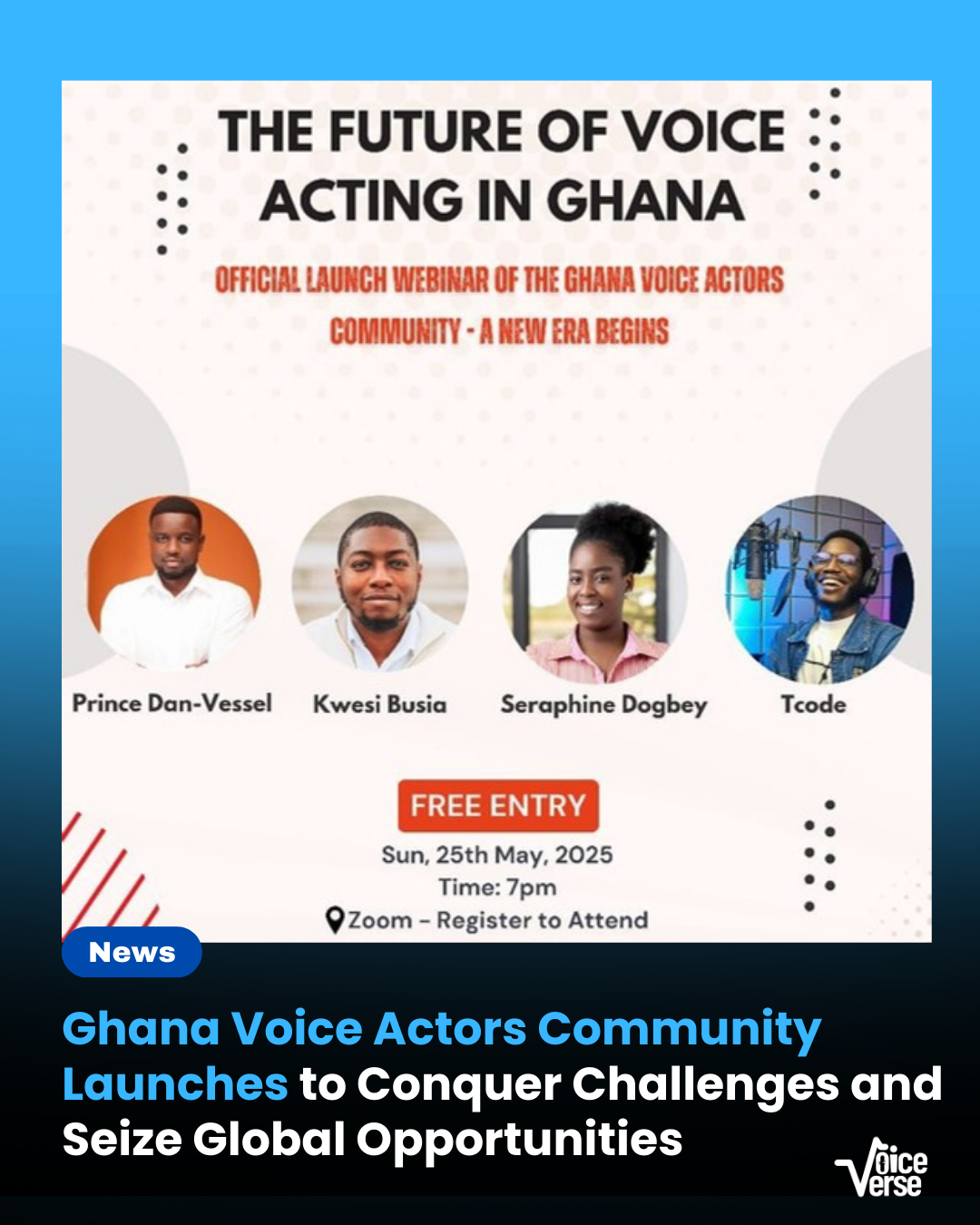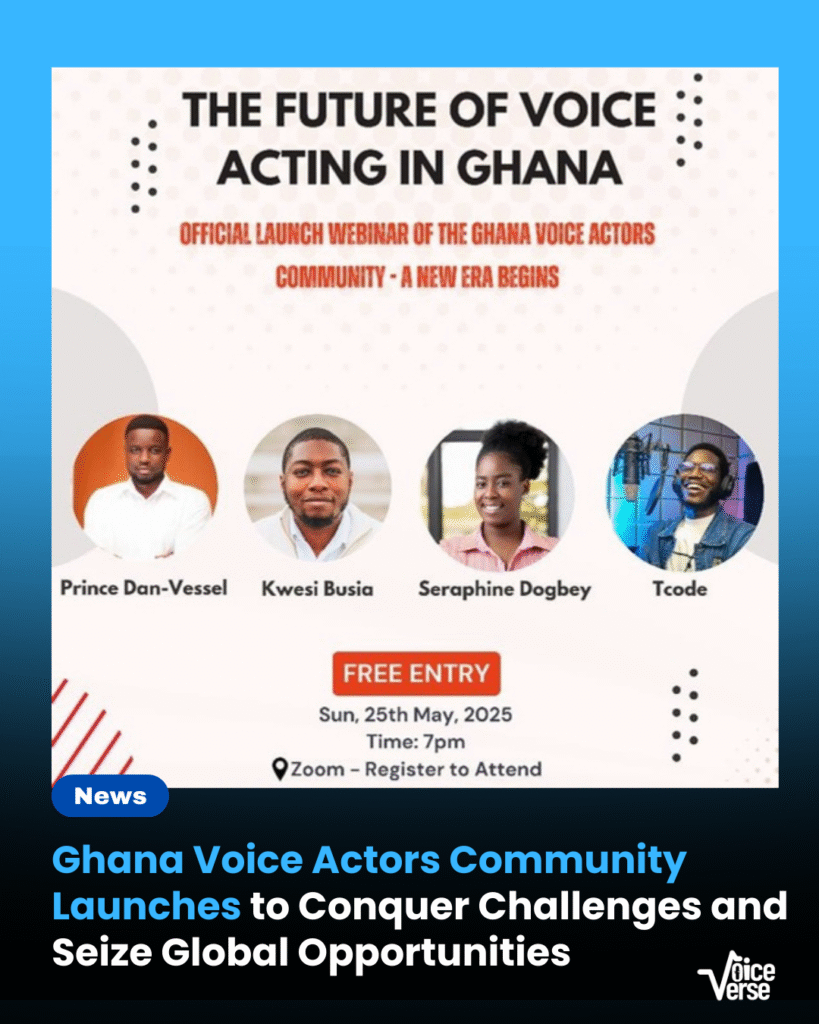
A significant step for Ghana’s voiceover industry was taken on Sunday, May 25, 2025, with the official launch of the Ghana Voice Actors Community. Hosted by Prince Dan-Vessel of the VO Playbook Podcast, the virtual webinar, themed “The Future of Voice Acting in Ghana”, convened prominent Ghanaian voice talents Kwesi Busia and Seraphine Dogbey, alongside Nigerian voice artist and coach Tolu (T-Code) Kolade. The event aimed to address critical issues and lay the groundwork for collective growth.
The Urgent Need for Community
While Seraphine Dogbey candidly stated that “yesterday or yesterday years” was the “best time” to build a community for Ghanaian voice actors given the industry’s history, both she and Kwesi Busia emphasized that “now is a very important time”. This urgency is driven by the rapid evolution of the voice acting landscape, particularly advancements in technology and AI, making community building essential to prevent Ghana from falling behind.
Tolu Kolade echoed this, describing voice acting as potentially “a very isolating journey, especially here in Africa”. Communities are needed “now more than ever” to share knowledge, get feedback, and collaborate, ultimately helping voice actors “figure things out fast”. Prince Dan-Vessel highlighted the community’s purpose: to provide a space for mutual support, opportunity sharing, learning, and shining a “spotlight on the talents we have in Ghana”.
Navigating Opportunities and Challenges
Opportunities for Ghanaian voice actors exist “locally and abroad”. Kwesi Busia noted that voiceover is a “global industry”, enabling talents in Ghana to work for international clients and potentially be “compensated very well”. Seraphine Dogbey pointed out that many local industries like advertising and corporate sectors need professional voices but struggle to find them because talents aren’t actively marketing themselves.

Specific local needs were highlighted, such as animator Francis Brown seeking Ghanaian voices and audiobook creator Ama Dadson actively searching for talent beyond established names. Tolu Kolade urged voice actors to view their craft as a “business enterprise” and proactively “create opportunities” by pitching to clients rather than waiting. Local languages were also identified as valuable “cash crops”.
However, the path is not without significant hurdles. A major challenge is the prevailing perception that voiceover is simply “just talking”, leading clients to undervalue the skill and question professional rates. Seraphine described this as a “big thing to overcome”.
Other key challenges discussed included the “equipment issue” – the difficulty in accessing affordable professional studios, underscoring the importance of home setups for timely auditions. There is also a “lack of structure” within the industry, such as agreed-upon rate cards. Poor PR and the difficulty in convincing outsiders that voiceover is a legitimate profession further impede growth.
Strategies for Career Growth and Protection

Developing a successful career, both locally and globally, relies on several key strategies. Knowledge through continuous learning, podcasts, and industry events is crucial.
Investment in necessary equipment was stressed, though speakers noted that affordable options exist, particularly for starting home studios. Mentorship from experienced professionals was highlighted as vital for skill exchange. Building industry structure, including associations and rate cards, is also seen as fundamental.
Crucially, marketing and personal branding were identified as the “most efficient fastest and most cost effective way” to grow. This involves being proactive, actively reaching out to potential clients, and using social media to showcase work and build a professional online presence with a clear name, targeted content, professional email, and demo reels.
This also helps improve the overall PR and reputation of the industry. Networking and collaboration were also encouraged. For beginners, gaining knowledge and some initial experience before investing heavily in equipment was advised. While versatility is valuable, it was acknowledged that clients often determine the best fit for a voice.
Addressing concerns about AI voice cloning, Tolu Kolade mentioned platforms like Voice 123 creating unique voice signatures and the NAVA AI synthetic voice contract rider as a tool for contractual protection. Kwesi Busia added that cloning is technically challenging, requiring significant data, and some platforms actively prevent unauthorized cloning while detection tools exist.
The community plans to hold monthly webinars on the 25th and introduce upcoming training programs. Attendees were encouraged to join the community on Instagram (@GhanaVoiceActorsCommunity) and WhatsApp. The speakers expressed optimism about the “sense of unity” and the collective effort to build a strong, respected, and structured voice acting industry in Ghana.
Follow @voiceverseng across all social media platforms for the latest news/updates in the VO Industry.
